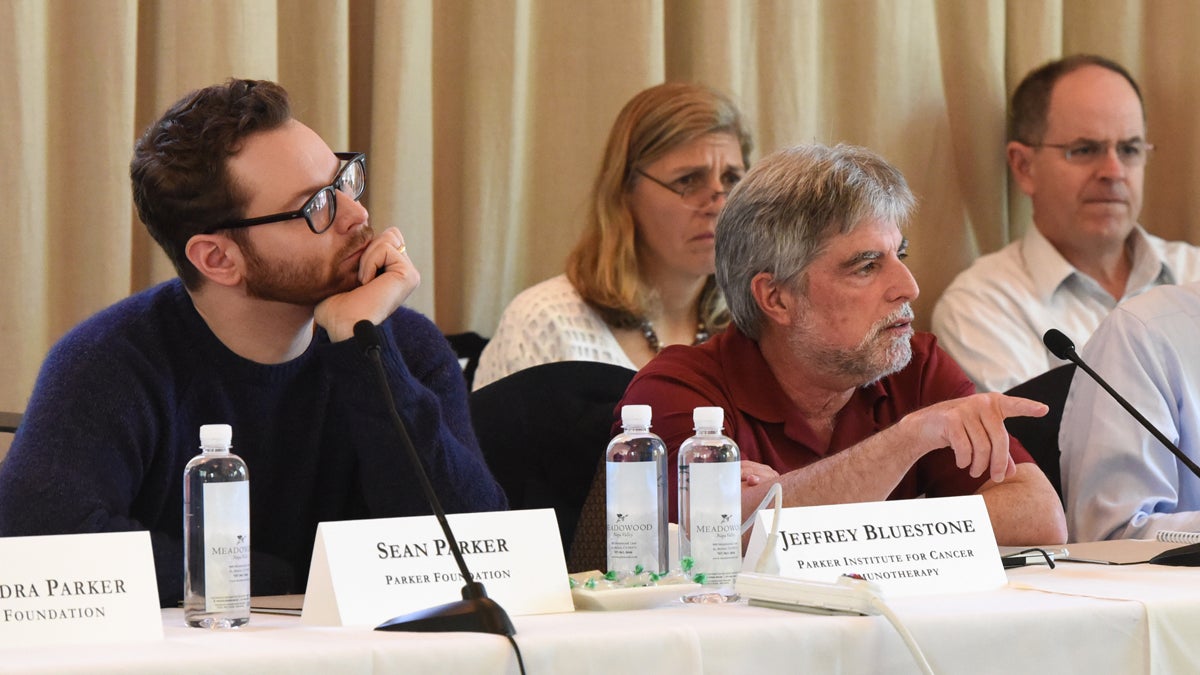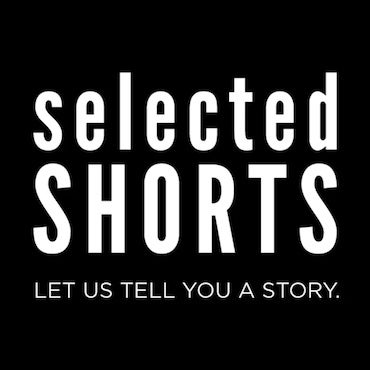Penn part of all-star cancer research team funded by $250 million from Napster founder

Sean Parker (left) and Jeffery Bluestone attend the Parker Institute for Cancer Immunotherapy Scientific Retreat in St. Helena
Sean Parker, a Silicon Valley billionaire and the founder of Napster, announced Wednesday that he is donating $250 million toward cancer immunotherapy research.
The University of Pennsylvania will join five other academic institutes in sharing the money and, more importantly, their data and ideas, as they pursue new forms of treatment.
“The scale and scope are unprecedented,” said Robert Vonderheide, who will direct the newly created Parker Institute at Penn. “The idea here is that we are going for the big win, and using the immune system to accomplish that.”
Under the agreement, researchers from Penn — along with Memorial Sloan Kettering Cancer Center, the University of Texas MD Anderson Cancer Center, Stanford Medicine, and University of California’s Los Angeles and San Francisco campuses — will collaborate and coordinate on projects, as well as share intellectual property. That means researchers who used to compete for limited grant money will now, in effect, form an all-star team.
“There’s no question that the existence of silos within labs or within institutions has held us back. There’s no question,” said Vonderheide, who is in Los Angeles at a launch event for the Parker Institute for Cancer Immunotherapy. “The idea here is to pay no attention to those borders, to work across them, and to achieve a greater efficiency that comes from collaboration and sharing.”
Immunotherapies seek to harness the body’s own immune system in recognizing and fighting off tumors and other cancer cells. Another benefit of the still novel treatment is that it appears capable of teaching human cells to remember cancers, Vonderheide said.
“So, quite distinct from chemotherapy or other types of therapy that only work when the patient gets them, using immune therapy is about educating the immune system about what cancer looks like, so it fights it off for the lifetime of the patient,” he said.
Penn will receive an initial grant between $10 million and $15 million grant to conduct laboratory trials and clinical studies, as well as hire staff.
WHYY is your source for fact-based, in-depth journalism and information. As a nonprofit organization, we rely on financial support from readers like you. Please give today.

